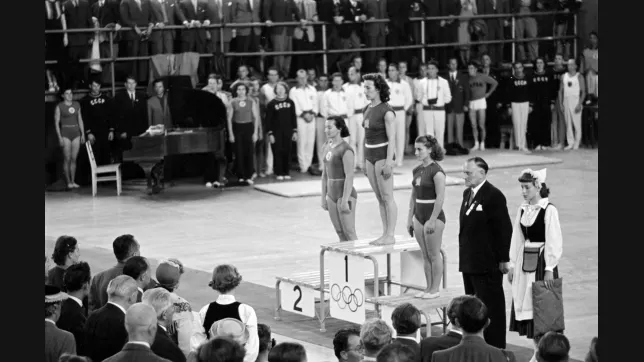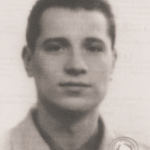Survivor and Olympic Champion: The Inspiring Journey of Agnes Keleti
Early Life and Career Beginnings
Agnes Keleti, originally Agnes Klein, was born on January 9, 1921, in Budapest, Hungary. Growing up in an assimilated Jewish family, Keleti started her gymnastics training at the age of four at Budapest’s only Jewish Sports Club. Showing remarkable talent early on, she won her first national championship in Hungary at sixteen and was on track to compete in the 1940 Tokyo Olympics. However, the outbreak of World War II and the subsequent cancellation of the games dashed her initial Olympic dreams.
Life under Nazi Occupation and Persecution
With the rise of Antisemitism and Hungary joining the Axis in 1940, Keleti faced increasing persecution. She was expelled from her gymnastics club due to her heritage and was forced into hiding. The German invasion of Hungary in 1944 worsened conditions for Jews, leading to mass deportations. Keleti’s father was sent to Auschwitz, while her mother and sister were saved by Swedish diplomat Raoul Wallenberg. Alone, Keleti survived by assuming a Christian identity and working as a maid.
Surviving During WWII
Keleti obtained false identification documents and, during the Battle of Budapest, contributed to war efforts by helping bury fallen soldiers. To avoid deportation, she hastily married fellow gymnast Istvan Sarkany, divorcing him after the war.
Life After the War
Post-war, Keleti resumed gymnastics, aiming for the 1948 London Olympics. An injury just before the event prevented her participation, but she persevered. At 31, Keleti made her Olympic debut in Helsinki in 1952, winning multiple medals against much younger competitors.
Back to the Olympics
In the 1956 Melbourne Olympics, Keleti, then 35, won six medals, becoming the oldest female gymnast to win an Olympic title. Her achievements made her Hungary’s most decorated female Olympian, but her career faced new challenges with Hungary’s political turmoil.
Journey to Israel & Becoming the Oldest Living Olympic Champion
Following the 1956 Soviet invasion of Hungary, Keleti sought asylum in Australia, later defecting to the Western bloc. She then moved to Israel, contributing significantly to Israeli gymnastics and starting a family. Keleti continues to inspire, recognized as a professional cellist and inducted into the International Gymnastics Hall of Fame in 2002.
Read more about Agnes Keleti’s inspiring story on the original Instagram post.












